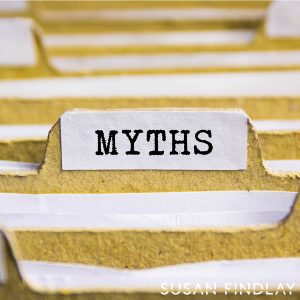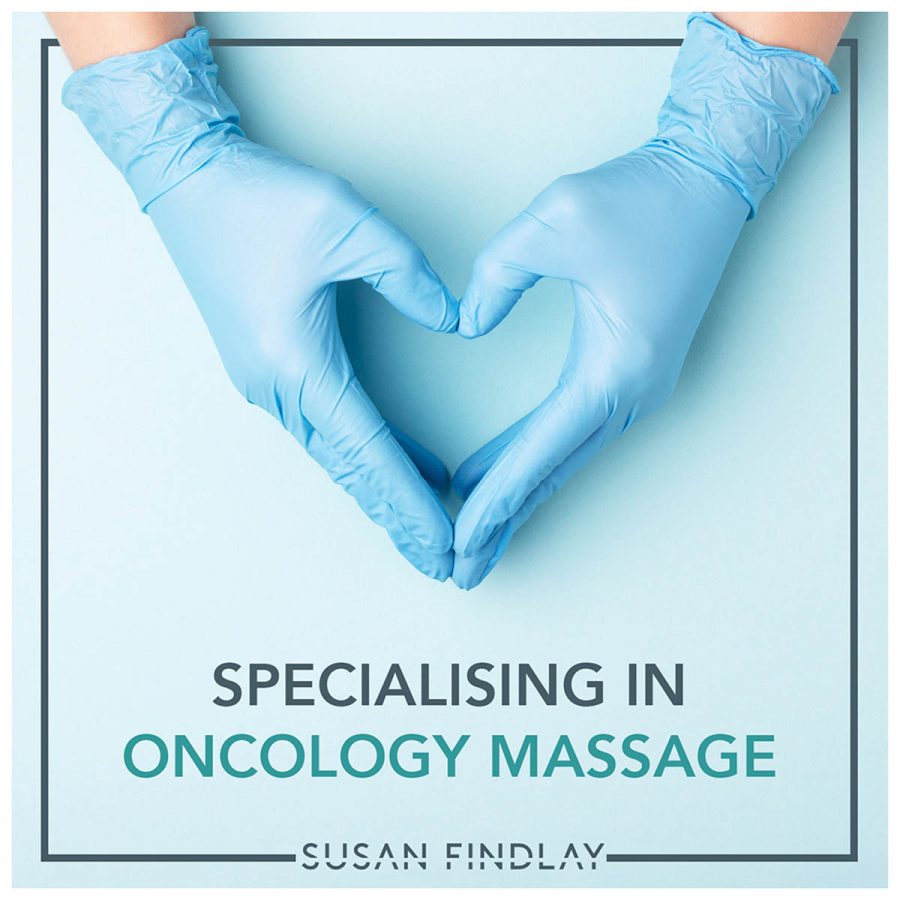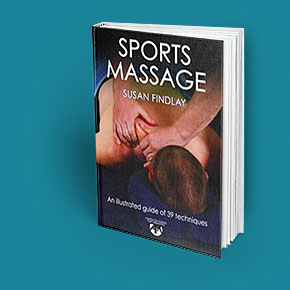I have been a massage therapist for 20 plus years. If you have been following my blogs and career then you may well know that I consider myself a holistic practitioner. This means that I treat the body as a whole; I understand the complex interplay between different parts of the body and the symptoms that dysfunction in one of them can precipitate in another. It is for this reason that I work with a medley of other experts in their fields, ranging from Pilates specialists to nutritionists. When I use this approach I know that my clients are receiving the best possible care, even if it is not all from me. It is absolutely crucial to any practitioner to prioritise client wellness over everything else.
At a certain crossroad in my career, I decided to specialise in oncology massage; it’s important to note here that this can mean massage to those who are currently suffering from cancer, and those who are recovering from it. In practice this requires me to have an awareness of what this can entail for my clients. As mentioned previously, my holistic approach has evolved from both an experiential understanding of what makes us human alongside a more conventional and academic one. Taking into consideration the layered narrative of each client’s story plays an important role in my decision making process, it is at the forefront of how I approach this field. Cancer can occur in virtually any part of the body and at times can seem quite complex, however, what it comes down to is that my sessions focus on the needs of my client at their current stage of health and the treatment encompasses all of their potential complaints, both physical and mental.
 In the past, it has been erroneously thought that massage could somehow make cancer worse by spreading the illness throughout the body. However, as modern science has proved, this is a myth and there are myriad benefits to oncology massage. Unfortunately, public opinion does not always move at the same pace at scientific discovery. This means that it is our job (well, one of our jobs!) to make sure we can be as informative as possible to our patients. This does not mean baffling them with complex medical terminology, which can be confusing and potentially anxiety-inducing. Instead it involves gently dispersing facts and information, which this article will help to do.
In the past, it has been erroneously thought that massage could somehow make cancer worse by spreading the illness throughout the body. However, as modern science has proved, this is a myth and there are myriad benefits to oncology massage. Unfortunately, public opinion does not always move at the same pace at scientific discovery. This means that it is our job (well, one of our jobs!) to make sure we can be as informative as possible to our patients. This does not mean baffling them with complex medical terminology, which can be confusing and potentially anxiety-inducing. Instead it involves gently dispersing facts and information, which this article will help to do.
Even if the patient does not show any physical symptoms, a cancer diagnosis can be extremely traumatic. Humans typically do not consider their own mortality on a day-to-day basis; cancer can force us to do this in an extremely abrupt manner. Even the word “cancer” is potentially emotionally triggering; everyone knows someone who has suffered from this illness. This is where I believe that the mental health benefits of massage can have a positive impact on our clients.
When our bodies are stressed, and cancer and its treatment is no doubt stressful, it releases high amounts of cortisol and adrenaline. This causes the muscles to tense up and feel tight. Massage is proven to benefit this by relaxing soft tissue, which enables the tension to disperse. Massage also stimulates the Vagal nerve, which is part of our parasympathetic nervous system. This sends a message through the body which tells it to destress[1] and has been shown to improve mood[2].
 A common complaint from my Oncology patients is that they cannot sleep; this can be from a combination of either their treatment, or general anxiety about their condition. Massage increases levels of serotonin, which helps my clients in both their sleep quality and their ease of falling asleep[3]. Sleep deprivation is also linked to a lowered immune system; this can be especially detrimental to people undergoing cancer treatment as one of the most common side effects is a suppressed immune system. Massage has been shown to boost the immune system[4] by improving its cytotoxic capacity[5] (cytotoxic cells are important for fighting intracellular pathogens).
A common complaint from my Oncology patients is that they cannot sleep; this can be from a combination of either their treatment, or general anxiety about their condition. Massage increases levels of serotonin, which helps my clients in both their sleep quality and their ease of falling asleep[3]. Sleep deprivation is also linked to a lowered immune system; this can be especially detrimental to people undergoing cancer treatment as one of the most common side effects is a suppressed immune system. Massage has been shown to boost the immune system[4] by improving its cytotoxic capacity[5] (cytotoxic cells are important for fighting intracellular pathogens).
Pain is also a common feature in my oncology patients. Studies have shown that Oncology massage can consistently reduce cancer pain in a manner that no other type of massage can[6]. I find it best to offer a form of massage that aids in the comfort of a client, although I am a strong advocate of a hands-on, “less is more”, approach, especially when it comes to pain during massage. I also believe that we can meet the right depth if we are sensitive to how the tissue is responding. This means that I would advise against deep and vigorous movements; instead communicate with your client and adapt your movements using a touch that can feel the response of the tissue.
I want to conclude this article by stating that my decision to specialise in Oncology massage hasn’t just benefited my clients. Having a specialism is one area is important for all jobs, and massage is no different. It means that I have something different to offer from many other practising massage therapists. This niche allows me to receive specialist referrals and also provide my clients with the peace of mind that they are dealing with someone who is experienced in the service which they require.
For anyone wishing to broaden their knowledge and offer a specialism, I deliver a number of Oncology Workshops around the country which will certify you as a qualified Oncology Massage Therapist. To find out more, click here.
- Lu WA, Chen GY, Kuo CD. Foot reflexology can increase vagal modulation, decrease sympathetic modulation, and lower blood pressure in healthy subjects and patients with coronary artery disease. Altern Ther Health Med. 2011;17(4):8-14. ↑
- Hatayama, Tomoko et al. “The Facial Massage Reduced Anxiety And Negative Mood Status, And Increased Sympathetic Nervous Activity”. Biomedical Research, vol 29, no. 6, 2008, pp. 317-320. Biomedical Research Press, doi:10.2220/biomedres.29.317. Accessed 25 Aug 2020. ↑
- Song, Rye Hun, and Do Hwan Kim. “The Effects Of Foot Reflexion Massage On Sleep Disturbance, Depression Disorder, And The Physiological Index Of The Elderly”. Journal Of Korean Academy Of Nursing, vol 36, no. 1, 2006, p. 15. Korean Society Of Nursing Science, doi:10.4040/jkan.2006.36.1.15. Accessed 25 Aug 2020. ↑
- Ang, J. Y. et al. “A Randomized Placebo-Controlled Trial Of Massage Therapy On The Immune System Of Preterm Infants”. PEDIATRICS, vol 130, no. 6, 2012, pp. e1549-e1558. American Academy Of Pediatrics (AAP), doi:10.1542/peds.2012-0196. Accessed 2 Oct 2020. ↑
- Ironson, Gail et al. “Massage Therapy Is Associated With Enhancement Of The Immune System’s Cytotoxic Capacity”. International Journal Of Neuroscience, vol 84, no. 1-4, 1996, pp. 205-217. Informa UK Limited, doi:10.3109/00207459608987266. Accessed 2 Oct 2020. ↑
- Wilkie, Diana J. et al. “Effects Of Massage On Pain Intensity, Analgesics And Quality Of Life In Patients With Cancer Pain: A Pilot Study Of A Randomized Clinical Trial Conducted Within Hospice Care Delivery”. The Hospice Journal, vol 15, no. 3, 2000, pp. 31-53. Informa UK Limited, doi:10.1080/0742-969x.2000.11882956. Accessed 2 Oct 2020. ↑

